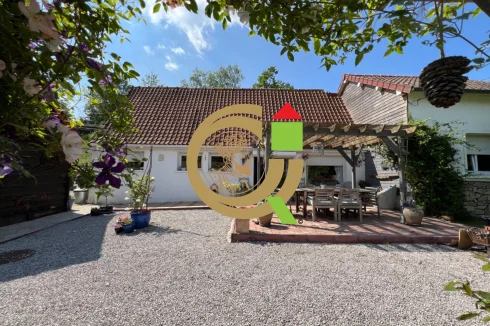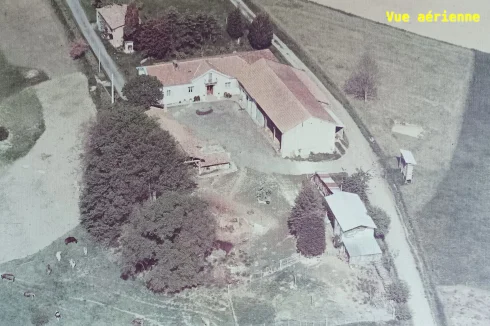Inheritance in France under European Succession Law
Tuesday 05 May 2015
A new European wide succession law comes into effect in August, so what are the implications for owners of French property?
The European Succession Regulation 650/2012 is already in force, but will only apply to the estate of an individual who dies on or after 17 August 2015.
The aim of the Regulation is to simplify the administration of cross border estates when individuals die with assets in more than one country.
For deaths occurring on or after the 17 August 2015, the worldwide estate of the deceased will be governed entirely by the law of the country where that individual was habitually resident on death.
The Regulation does, however, allow an individual, regardless of nationality, who dies in an EU member state, to elect the law of their nationality to apply to the administration of their entire estate instead.
Currently (pre 17 August 2015), if an individual was habitually resident in France at the date of death, his whole estate would be subject to French inheritance law apart from any real estate (house, apartment, land etc) situated outside France.
If an individual simply owned a second home in France, then French law would only apply to that second home and to no other assets.
Second Home Owners
If you are a UK national with a second home in France you are subject to the law of England and Wales. England and Wales (as well as Ireland and Denmark) have not signed the EU Succession Regulation.
It is possible that you could seek to use the Regulation to elect the law of your nationality to apply to your worldwide estate, but it will not be certain that this will be effective unless and until there have been some test cases in the UK & French courts or until the UK reverses its decision and opts into the Regulation.
For UK residents, the effect of electing English and Welsh law is therefore not yet known.
The French property would be administered by a French notaire trying to apply English law. This will cause complications, delays, additional expense and uncertainty. What is more, French inheritance tax will still apply to the French asset, irrespective of whether England and Wales later opt in.
In view of the above, our current recommendation is that we advise you on French law as it stands at present, and as it applies to your personal situation. We can usually find a safe and established way to meet the requirements of most our clients through tried and tested French estate planning measures.
By using such measures which are familiar to the French notaire you can be sure to avoid the complications, delays and expenses which may potentially flow from an election of the law of your nationality.
Your will(s) should specify that whilst French law governs your French house, English & Welsh law will apply to everything else.
Resident in France
For UK nationals resident in France (excluding Scottish nationals) the position is different, as France has adopted the EU Succession Regulation.
Accordingly, you can elect for the law of your nationality to apply to the whole of your worldwide estate.
If you make a valid will nominating English law, your whole estate would be administered by a French notaire trying to apply English law. Again, this will cause complications, delays, expenses and uncertainty and French inheritance tax will still apply.
As for non French residents, we therefore recommend that you try to find an estate planning solution which follows French law, whether that be by way of a French will or by means of an alternative French estate planning measure.
Nominating English & Welsh law should be a last resort.
Scottish nationality
If you are of Scottish nationality and choose the law of your nationality to apply, further complications are likely as under Scottish law an individual does not have absolute freedom to leave his / her estate without restriction.
Conclusion
Even if English & Welsh law would give you the freedom to escape the restrictive forced heirship rules of French law, as mentioned above, French inheritance tax will still be charged on the value of any French assets included in your estate.
If, for example, you wished to leave your French estate to an unmarried partner, he/she would still be liable to pay inheritance tax at a rate of 60% on the value of the assets inherited. If you have step children to whom you wish to leave a share of your estate they too would be taxed at the 60% rate.
Given the current uncertainty as to how the EU Regulation will apply in practice, for English and Welsh nationals, permanently resident in the UK, we can only advise on the basis of existing law, i.e. French law applying to French property.
For English and Welsh nationals who are resident in France, whilst you can elect the law of your nationality to apply, it might be worth considering whether it is worth the uncertainty and complications given that a French notaire will be asked to administer your estate under English & Welsh law with which s/he is not familiar.
If you can find a French law solution which satisfies your testamentary wishes, it would be preferable to go down that route – at least until there is greater clarity as regards how your estate will be administered should you elect the law of your nationality to take precedence over French law.
Barbara Heslop
Heslop & Platt, French Property Solicitors
Heslop & Platt
Next Article: MyFerryLinks Bids
Thank you for showing an interest in our News section.
Our News section is no longer being published although our catalogue of articles remains in place.
If you found our News useful, please have a look at France Insider, our subscription based News service with in-depth analysis, or our authoritative Guides to France.
If you require advice and assistance with the purchase of French property and moving to France, then take a look at the France Insider Property Clinic.





